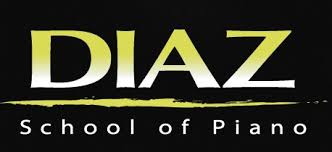FAQs: What do lessons cost, and what does it include?
/In the 14 years of running Diaz School of Piano, perhaps the most frequent question I receive is: "What do lessons cost?" And a close second is: "What does this include?"
This is a very important, and responsible, question that families ask. In a lot of ways, the answers to these questions determine who will become you, or your child's, piano teacher. If the price is too high, perhaps piano lessons become cost-prohibitive because there are other (cheaper) ways to "invest" in one's artistic development. On the contrary, if the price is too low, perhaps it's a reflection of the teacher's lack of credentials, or skill, or teaching ability.
So, let me answer the first FAQ: "What do lessons cost?" At Diaz School of Piano, the cost of a 4-month semester is $450.00. But before you stop reading because of perceived sticker shock, let me also answer the second FAQ: "What does this include?"
Included in the 4-month tuition is:
- 14 one-hour classes. Each student has their own keyboard outfitted with headphones so they have the luxury of a classroom setting while also having the privacy of their own piano station.
- Music materials are supplied. I provide much of the music materials for the students. You aren't expected to buy a set of books that can be an unexpected initial cost. Each student is given a packet each week of original music that I have composed that seeks to support their technical and musical development, as well as arranged music from different genres, and worksheets to support their understanding of music theory.
- Weekly Performance Times. At the end of each class, students are given the opportunity to share their music with their peers by playing and performing for one another. It can an entire piece from memory, or simply a part of a piece they are working on with music. Either way, it is meant to be a safe and encouraging place for students to develop confidence and courage in finding joy in sharing their music as a gift to others.
- Use of the Help Room. The Help Room is open on most Sundays from 4p-530p and is included in the semester tuition. It is meant to be an additional and optional tool to help:
- make up a missed class
- have a quiet place to practice
- get extra help between lessons
- Assistants in most classes. Most classes have a more advanced student assisting with the class. They are responsible and knowledgable students who help contribute by assisting in classes by offering extra help, encouragement, and direction during each class.
- Recitals. At the end of the Fall and Winter Semesters, we have a studio recital where we go to a local church and have a recital program and light reception afterwards. It is a highlight for many families and students in the community - and admission is free and is included in the semester tuition cost.
- Developing skills to become a pianist for a lifetime. One of my greatest goals for my students is that they become pianists for their lifetime. That their piano playing days are not limited by the times that they were taking lessons. But as they learn to play the piano, they are, in fact, developing the tools that equip them to play the music they love - for the rest of their lifetime.
There are many factors to consider when trying to decide whether or not to pursue taking formal piano lessons, much less deciding on a teacher. But for me as a teacher, the greatest joy is seeing students make profound discoveries about themselves through the medium of music-making at the piano. And for what it's worth, in my opinion, that is priceless.

